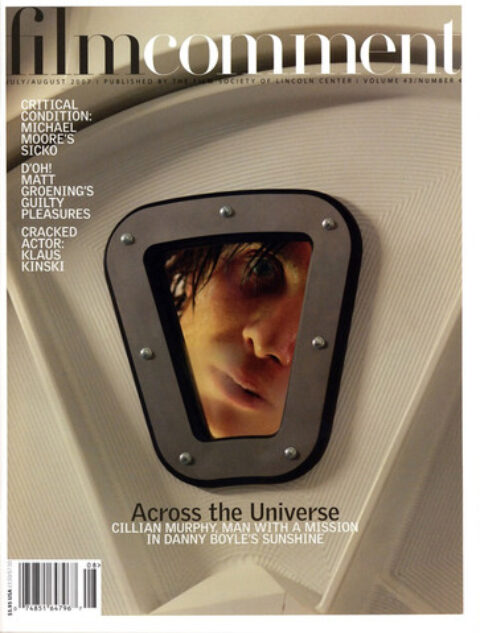
Three people wake up in a sofa bed—this is one of the first shots in the film, but it’s not the beginning of the story. Christophe Honoré’s Dans Paris is about how they got there.
That is explained over the course of a day (December 23) in the life of a broken family living in an apartment on the outskirts of Paris. Two of the people in the sofa bed are brothers: the deeply depressed Paul (Romain Duris) and his younger sib Jonathan (Louis Garrel), who has joie de vivre, or at least appetite, oozing from every strand of his greasy hair. Jonathan invites us into the movie (he apologizes for directly addressing the audience) and explains his purpose: to determine how someone would jump off a bridge for love.
Flashbacks give a taste of the troubled romance between Paul and Anna (Joana Preiss), which is evidently—though, as we learn, not entirely—the cause of his depression. In one scene, an index for a certain tendency in French cinema, Anna shimmies topless as Paul attempts to dance with her. After a point he simply falls out of the shot onto a couch, as she remains moving within the frame and he becomes a watcher.

Back on December 23, Paul mopes in bed while Jonathan tries to rouse him by wagering that he can reach the Christmas windows at Le Bon Marché in 30 minutes on foot. In fact, this journey takes all day, as Jonathan “stops the clock” to bed three different women before dusk. Paul and Jonathan’s father (Guy Marchand) try to prepare chicken soup. A visit from the boys’ errant mother (Marie-France Pisier) interrupts.
That 30-minute rush to Le Bon Marché recalls the dash through the Louvre in Godard’s Bande à part, and this is just the start of Honoré’s remembrance of cinema past—Dans Paris is not merely allusive to the French New Wave, it’s practically Tarantino-esque. When Louis runs into his sometime girlfriend (Alice Butaud) and talks his way out of an outstanding debt, the camera retreats Breathlessly, evoking Belmondo and Seberg hawking newspapers for Godard. These references could be embarrassing if they weren’t so cheery: Louis playfully “ice-skating” across pavement; the classic Truffaut setup of a man reading while sitting next to a woman in bed; name-checking a Sam Fuller film. (It’s Forty Guns.)
Dans Paris is writer-director Honoré’s fourth feature, following the sex-and-death Georges Bataille adaptation, Ma mère, which starred Garrel and Isabelle Huppert. He spends enough time on the corrosive Paul-Anna love story (and Duris and Preiss are so convincingly tortured) that he earns the later New Wave whimsies, up to and including a serious telephone conversation that becomes a singing duet. Along with these tricky tonal shifts, Honoré is clearly onto something with his pacing; he allows time for the important scenes, but creates room for odd interludes—the father dragging a Christmas tree along a sidewalk, or Paul listening to an old Kim Wilde 45 as he lolls on his bed. It should feel distended, but the overall flow is right.

One of the gifts of the New Wave was the idea that movies could convey the delight of making films, watching them, thinking about them. Since then, filmmakers outside Hollywood have become more skeptical about the use and power of cinema (as Godard was already in the early Sixties, but the fizz was still there). With Dans Paris, Honoré circles back to those pleasures, without being glib. Amongst the film’s aphorisms (the kind of thing French movies could never get away with if they were in English), there is this pensée by Jonathan: “I think we grossly underestimate our sorrow, in general.” Probably we grossly underestimate our joy, too. Without resorting to cutesiness, irony, or crowd-pleasing, the remainder of Dans Paris is an attempt to estimate joy.








